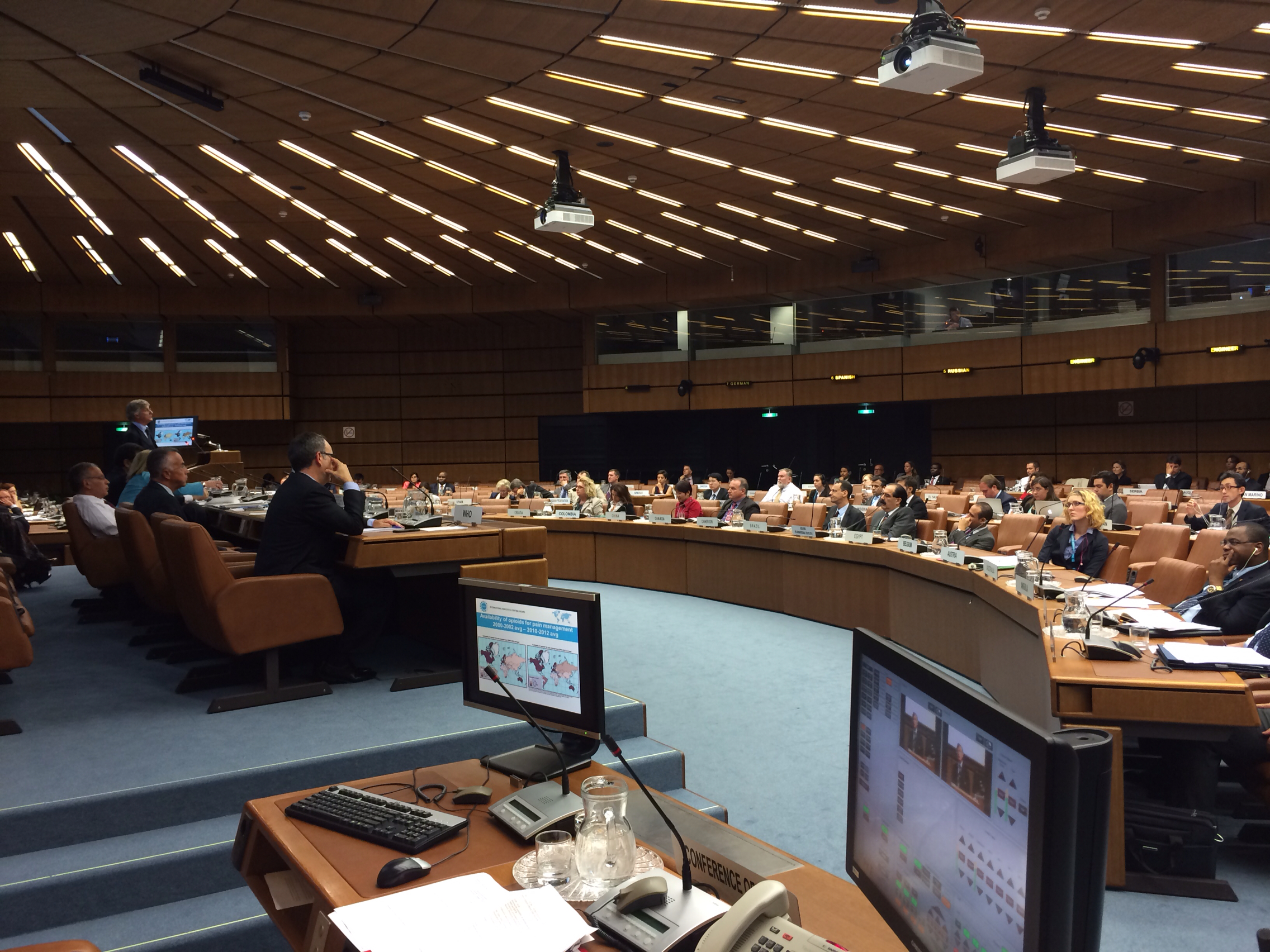INCB briefs Member States at the CND Intersessional Meeting on availability of drugs for pain relief
On 4 September 2014, the Fifth Intersessional Meeting of the Commission on Narcotic Drugs was held. INCB participated in the substantive briefing of Member States on "Ensuring the availability of controlled substances for pain medication". The Briefing included also presentations by WHO Essential Medicine Department, and UNODC Drug Prevention and Health Branch. INCB presented to delegates an overview of the situation regarding the availability of opiates and psychotropic substances for medical use and in particular for pain relief. The INCB highlighted that while there is no shortage of raw material for the production of these essential medicines, the consumption of narcotic drugs for pain relief is concentrated in a limited number of countries. Access to these drugs continues to be uneven, with consumption concentrated primarily in countries in North America, Western Europe and Oceania. The reality is that 92 per cent of the world's morphine is consumed by 17 per cent of the world's population while the rest of the world population (83 per cent) is left with only 8 per cent. This imbalance is particularly problematic, since the latest data show that over 70 per cent of cancer deaths actually occur in low- and middle-income countries. Without sustained action, cancer incidence is projected to increase by 70 per cent in middle-income countries and by 82 per cent in lower-income countries by 2030. Apart from the needs related to cancer, pain treatment is needed in many other health situations (surgery, delivery, etc.), and in several regions pain relief drugs are not commonly prescribed. Also, psychotropic substances are also needed to treat some health conditions and their availability is equally reduced. The INCB referred to the 2010 report of the Board on availability and reminded delegates that an update of that report will be published in 2016 as a supplement to INCB annual report for 2015 with a focus on the implementation by Governments of the recommendations made by the board in in 2010.
